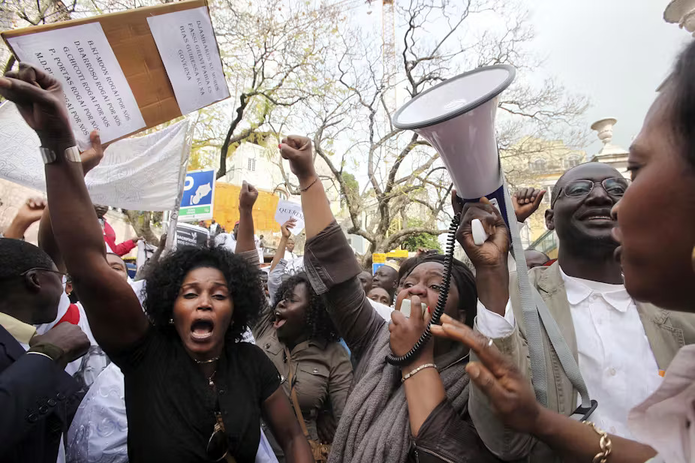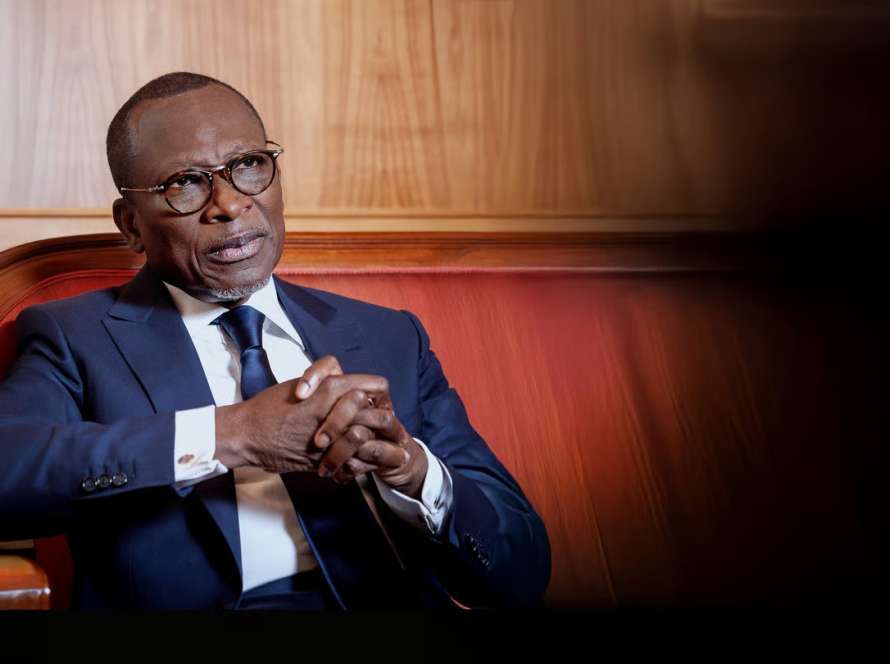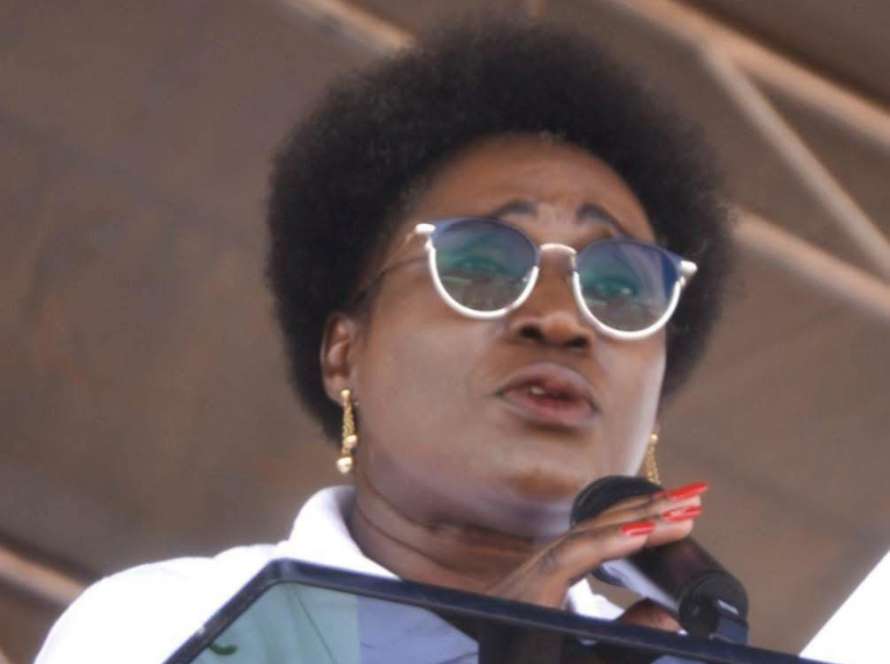Being a journalist in Guinea-Bissau, and a critical one for that matter, is not just about exercising a profession, it is an act of courage. The country’s media landscape, once animated by vibrant voices and diverse opinions, is now marked by fear, silence, and surveillance. Threats, physical attacks, and arbitrary arrests of journalists who dare to produce critical reports have become commonplace.
This hostile environment is reflected in Guinea-Bissau’s sharp decline in the 2025 Reporters Without Borders (RSF) press freedom ranking. The country dropped 18 places from the previous year. Behind this statistic lies a disturbing pattern indicating that the deterioration of press freedom is not incidental; but rather, a reflection of the situation on the ground where deliberate efforts are made to silence free speech and the very actors tasked with informing the public and holding power to account.
Independent radio stations have become high-risk zones. Capital FM, a privately owned station in Bissau, bore the brunt of airing critical analysis. Armed men in military uniform stormed its premises on February 7, 2022, shooting indiscriminately at anything in sight. Equipment was destroyed, and four journalists injured. One of the victims, Maimuna Bari, suffered such severe injuries that she remained in a coma for months.
This frightening experience occurred only hours after the station had aired a programme featuring political analyst Rui Landim. He commented on the political situation in the country at the time. Landim himself would pay the price for his critical analysis of the country’s political situation. The following day, his home was attacked by armed men believed to be from the Polícia de Intervenção Rápida (PIR).
On November 29, 2022, armed men in plainclothes assaulted and abducted Marcelino Intupé, a lawyer and political commentator for Rádio Bombolom. The assailants attacked him at his home, hitting his head with the buttstock of a rifle before dragging him into their van. Intupé believed the attack was linked to critical comments he made earlier that day on the current affairs program, Alô Guiné, which were also shared on Facebook.
In December 2023, armed men stormed the national broadcaster, TGB, to prevent the airing of a report on the dissolution of parliament. A political loyalist was subsequently imposed on the station as the new director, overriding independent editorial leadership.
Specific incidents of attack against journalists
While all journalists in Guinea-Bissau often operate under threat, those who report critically or cover demonstrations face distinct and heightened vulnerabilities.
During a peaceful protest on May 18, 2024, journalists Zinaida Pereira and Julinha Sambú, reporting for the national broadcaster, TGB, were arrested. Shortly after, Sambú was suspended by the broadcaster. The protest was against violence targeting critical voices, as well as other forms of human rights abuses and actions undermining democracy in the country.
On May 31, 2024, presidential security forces assaulted journalist Ussumane Mané of Rádio Sol Mansi while he was covering a presidential visit to the Faculty of Medicine. After questioning officials about the death of a detainee linked to the February 2022 coup attempt, he was punched and warned, “You are pushing. If this leaks, you will answer for it.” In the days that followed, he received anonymous threats accusing him of leaking sensitive information.
About six weeks later, on July 13, 2024, at Osvaldo Vieira International Airport in Bissau, President Umaro Sissoco Embaló verbally attacked Mané in public. When asked whether presidential elections would be held in 2024, Embaló lashed out: “Vai-te f*” (Go f* yourself). The journalists’ union, Sindicato dos Jornalistas e Técnicos da Comunicação Social (SINJOTECS), responded by calling for a boycott of presidential activities, citing a growing pattern of hostility and disrespect towards the media.
This was not an isolated incident. In January 2024, the President branded journalists as “mouths for hire” who “damage the country’s image,” in his criticism against journalists for interviewing political analysts. Later on in the year, during a meeting with media representatives, the President claimed that journalists were “free to criticise,” but added that Guinea-Bissau was the only Lusophone country where “a journalist insults the President and sleeps peacefully.” SINJOTECS later condemned the meeting with the President as hollow and devoid of genuine engagement.
On July 31, 2024, during a peaceful protest by teachers demanding unpaid salaries, violence escalated. Two female journalists covering the event were seriously injured. Ngouisam Monteiro of Rádio Popular was struck by a police vehicle and violently thrown to the ground. Djuma Culubali of Rádio Capital FM was hit with a baton from behind by an officer while filming. She collapsed and fell unconscious. Her foot run over by a vehicle. Both were hospitalised. SINJOTECS condemned a deliberate targeted attack on both Culubali and Monteiro by the police.
On August 13, 2024, over a dozen journalists were barred from covering the return of opposition figure Braima Camará at the airport in Bissau. Police officers blocked access and chased reporters from every location they tried to work from.
On August 22, 2024, Indira Correia Baldé, RTP-Africa correspondent and president of SINJOTECS, was banned from attending a Ministry of Health ceremony. Minister of Health, Maria Inácia Sanhá, walked out of the ceremony upon seeing her. Indira was walked out of the ceremony so the Minister could participate.
“This isn’t about me. It’s about what I represent, independent journalism,” Indira said later in an interview. Vice-President of SINJOTECS, Fátima Camará, has faced similar bans.
On September 15, 2024, video journalist Júlio Oliveira of Portuguese media, Lusa, was assaulted by police officers while covering the return of opposition leader Domingos Simões Pereira. Officers punched him in the back, forced him to delete all footage, and threatened to arrest him. Only the intervention of fellow journalists prevented his detention.
Call to Action
An attack on the media is not limited to a violation of journalists’ rights. It is equally an assault on every citizen’s right to quality, factual information, which is vital for informed decision-making, holding leaders accountable, and participating in civic life. In the absence of independent media, corruption proliferates in silence; abuses go unchecked; and citizens lose the ability to make informed decisions; public resources are mismanaged; and few political elites and those close to power capture state resources for self-aggrandisement at the expense of the poor masses.
Guinea-Bissau can continue down the path of repression, or choose to let truth, transparency and accountability thrive on the back of open, free and independent media ecosystem for the country’s development and international recognition. Other African countries have walked this path. Namibia, South Africa, and Seychelles have made gains by investing in transparency, constitutional protections, and media independence. Namibia’s press ombudsman system, South Africa’s investigative journalism culture, and Seychelles’ dismantling of media monopolies offer important lessons, not necessarily for replication, but more importantly, for adaptation.
On May 3, 2024, the Media Foundation for West Africa (MFWA), with support from the European Union, launched the National Comprehensive Framework on the Safety of Journalists, a critical roadmap to protect media professionals operating in high-risk environments. Grounded in local realities and built through consultation with Bissau-Guinean media and civil society actors, the framework proposes a mix of legal, institutional, and community-based reforms. However, it requires political will, civic mobilisation, and international solidarity to take root.
To chart a more progressive path and transform the countries development prospects, the following recommendations are made to the government of Guinea Bissau:
- Legal Reform
- Ensure full implementation and enforcement of constitutional guarantees for freedom of expression (FOE) and freedom of information (FOI), in line with Guinea-Bissau’s obligations under regional and international human rights instruments.
- Establish independent oversight bodies to monitor and investigate abuses against journalists and to ensure that culprits are heftily punished to deter future abuses.
- Institutional Independence
- De-politicise public media through transparent appointments and editorial safeguards.
- Empower independent media associations with funding, training, and formal roles in media policy.
- Protection and Redress
- Create rapid-response and legal support mechanisms for journalists facing threats or attacks.
- Ensure that victims of state- or non-state-sponsored violence receive justice, compensation, and protection.
- International Solidarity
- ECOWAS and the African Union should engage the government of Guinea Bissau on its press freedom situation and offer constructive support on how to leverage an open and free media sector for participatory and democratic governance that endears the citizenry to the government.
- ECOWAS and the African Union should provide funding, technical expertise, and emergency protective platforms for journalists at risk.






